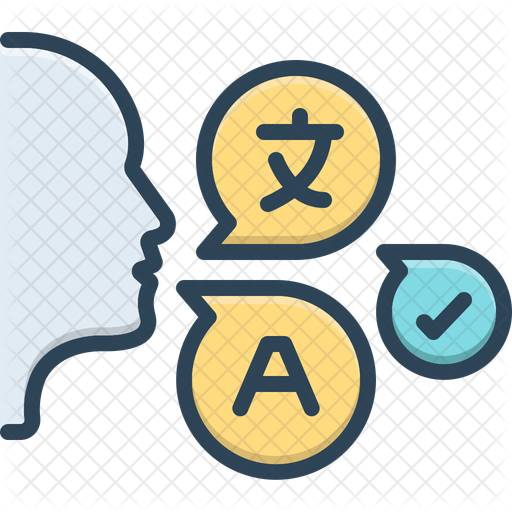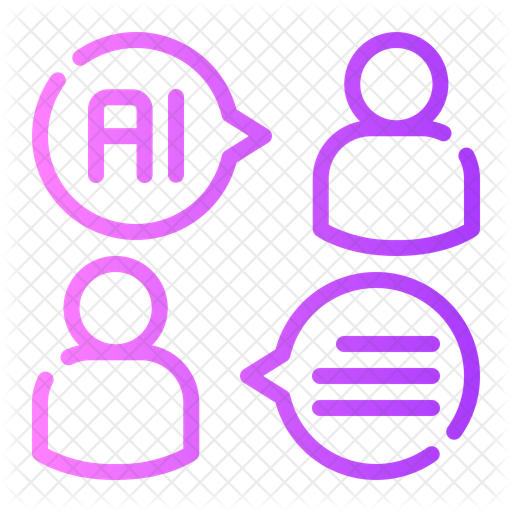100 Bài tập Hiện tại tiếp diễn và Hiện tại đơn có đáp án
Bài viết 100 Bài tập Hiện tại tiếp diễn và Hiện tại đơn có đáp án với đầy đủ ngữ pháp giúp bạn phân biệt Hiện tại tiếp diễn và Hiện tại đơn từ đó học tốt Ngữ pháp Tiếng Anh hơn.
100 Bài tập Hiện tại tiếp diễn và Hiện tại đơn có đáp án
Bài tập Hiện tại tiếp diễn và Hiện tại đơn (phần 1)
Bài 1: Are the underlined verbs right or wrong? Correct them where necessary.
| 1 | Water boils at 100 degrees Celsius. | Ok |
| 2 | The water boils. Can you turn it off? | is boiling |
| 3 | Look! That man tries to open the door of your car. | ..... |
| 4 | Can you hear those people? What do they talk about? | ..... |
| 5 | The moon goes round the earth in about 2 days. | ..... |
| 6 | I must go now. It gets late. | ..... |
| 7 | I usually go to work by car. | ..... |
| 8 | "Hurry up! It's time to leave." "OK, I come" | ..... |
| 9 | I hear you've got a new job. How do you get on? | ..... |
| 10 | Paul is never late. He's always getting to work on time | ..... |
| 11 | They don't get on well. They're always arguing. | ..... |
Đáp án & Hướng dẫn:
3. is trying
4. are they telling
5. OK
6. It's getting
7. OK
8. I'm coming
9. are you getting
10. He always gets
11. OK
Bài 2: Put the verb into the correct form, present continuous or present simple.
1. Let's go out. It isn't raining (not/ rain) now.
2. Julia is very good at language. She speaks (speak) four language very well.
3. Hurry up! Everybody ...... (wait) for you.
4. '...... (you/listen) to the radio?' 'No, you can turn it off'?'
5. '...... (you/listen) to the radio every day?' "No, just occasionally?"
6. The River Nile ...... (flow) into the Mediterrancan.
7. The river ...... (flow) very fast today - much faster than usual.
8. We usually ...... (grow) vegetables in our garden, but this year we ..... (not/grow) any.
9. A : How's your English?
B: Not bad. I think it ...... (improve) slowly.
10. Rachel is in London at the moment. She ...... (stay) at the Park Hotel. She always ...... (stay) there when she's in London.
11. Can we stop walking soon? I ...... (start) to feel tired.
12. A: Can you drive?
B: I ...... (learn).My father ...... (teach) me.
13. Normally I......(finish) work at five, but this week I ...... (work) until six to earn a little more money.
14. My parents ...... (live) in Manchester. They were born there and have never lived anywhere else. Where ...... (your parents/live)?
15. Sonia ...... (look) for a place to live. She ...... (stay) with her sister until she finds somewhere.
16. A: What ..... (your brother/do)?
B: He's an architect,but he ...... (not/work) at the moment.
17. (at a party) I usually ......(enjoy) parties, but I ..... (not/enjoy) this one very much.
Đáp án & Hướng dẫn:
3. 's waiting
4. Are you listening
5. Do you often
6. flows
7. 's flowing
8. grow ... aren't growing
9. 's improving
10. 's staying
11. 'm starting
12. 'm learning ... 's teaching
13. finish ... 'm working
14. live ... do your parents live
15. 's looking ... 's staying
16. does your brother do ... isn't working
17. enjoy ... 'm not enjoying
Bài 3: Finish B's sentences. Use always –ing.
1. A: I've lost my pen again.
B: Not again! You're always losing your pen.
2. A: The car has broken down again.
B: That car is useless. It .....
3. A: Look! You've made the same mistake again.
B: Oh no, not again. I .....
4. A: Oh, I've forgotten my glases again.
B: Typical! ......
Đáp án & Hướng dẫn:
2. It's always breaking down
3. I'm always making the same mistake/ ... that mistake.
4. You're always forgetting your glasses
Bài tập Hiện tại tiếp diễn và Hiện tại đơn (phần 2)
Bài 1: Are the underlined verbs right or wrong? Correct them where necessary.
| 1 | Nicky is thinking of giving up her job. | Ok |
| 2 | Are you believing in God? | ..... |
| 3 | I'm feeling hungry.Is there anything to eat? | ..... |
| 4 | This sauce is great. It's tasting really good. | ..... |
| 5 | I'm thinking this is your key. Am I right? | ..... |
Đáp án & Hướng dẫn:
2. Do you believe
3. OK
4. It tastes
5. I think
Bài 2: Use the words in brackets to make sentences. (You should also study Unit 3 before you do this exercise)
1. ( You/not/seem/very happy today)
You don't seem very happy today.
2. A: (what/you/do)
............
B: Be quiet!(I/think)
............
3. A: (who/this umbrella/belong to?)
............
B: I have no idea.
4. A: (the dinner/smell/good)
............
5. Excuse me. (anybody/sit/there?)
............
B: No,it's free.
6. A: (these gloves/not/fit/me)
............
B: They're to small.
Đáp án & Hướng dẫn:
2. What are you doing? I'm thinking
3. Who does this umbrella belong to?
4. The dinner smells good
5. Is anybody sitting these?
6. These gloves don't fit me
Bài 3: Put the verb into the correct form, present continuous or present simple.
1. Are you hungry? Do you want (you/want) something to eat.
2. Don't put the dictionary away. I ...... (use) it.
3. Dont put the dictionary aw.ay. I ...... (need) it
4. Who is that main? What ...... (the/want)?
5. Who is that main? Why ...... (the/look) at us?
6. Alan says he's 80 years old, but nobody ...... (believe) him.
7. She told me her name, but I ...... (not/remember) it now.
8. I ...... (think) of selling my car. Would you be interested in buying it?
9. I ...... (think) you should sell yout car. You ...... (not/use) it very often.
10. Air ...... (consist) mainly of nitrogen and oxygen.
Đáp án & Hướng dẫn:
2. am using
3. need
4. does he want
5. is he looking
6. believes
7. don't remember
8. am thinking
9. think ... don's use
10. consists
Bài 4: Complete the sentences using the most suitable form of be. Sometimes you must use the simple (am/is/are) and sometimes the continuous is more suitable (am/is/are being).
1. I can't understand why he's being so selfish. He isn't usually like that.
2. Sarah ...... very nice to me at the moment. I wonder why.
3. You'll like Debbie when you meet her. She ...... very nice.
4. You're usually very patient, so why ...... so unreasonable about waiting ten more minutes?
5. Why isn't Steve at work today? ...... ill?
Đáp án & Hướng dẫn:
2. is being
3. is
4. are you being
5. Is he
Ngữ pháp phân biệt Hiện tại tiếp diễn và Hiện tại đơn
Hiện tại đơn diễn tả một thói quen hàng ngày, trong khi hiện tại tiếp diễn nói tới hành động đang xảy ra ngay tại thời điểm nói.
| Thì | Hiện tại đơn | Hiện tại tiếp diễn |
| Cách sử dụng |
1. Diễn tả một thói quen hàng ngày. 2. Diễn tả những sự thật hiển nhiên. 3. Diễn tả những sự việc xảy ra theo quy luật, thời gian biểu hay lịch trình cố định. |
1. Diễn tả một hành động đang xảy ra ngay tại thời điểm nói. 2. Diễn tả sự việc đang diễn ra xung quanh thời điểm nói. 3. Diễn tả một sự việc sẽ xảy ra trong tương lai theo một kế hoạch đã được lên lịch trước. |
| Cấu trúc |
+ S + V(s/es)... - S + do not/ does not + V.... ? Do/Does + S + V...? (Wh + do/does + S + V...?) |
+ S + am/is/are + Ving... - S + am/is/are + not + Ving... ? Am/Is/Are + S + Ving...? (Wh + am/is/are + S + Ving...?) |
| Dấu hiệu nhận biết | - Khi có các trạng từ chỉ tần suất: Every..., always, often, normally, usually, sometimes, seldom, never, first, then. |
- Khi có các trạng từ chỉ thời gian: at this moment, at the moment, at this time, at present, today, now, right now, for the time being (now), listen!, look!, watch!, be careful! |
| Ví dụ |
- Nam reads books everyday. - He doesn’t play tennis. - Do the children go to school 6 days a week? |
The boys are playing football now. The girl isn’t drawing at the moment. Are you learning English right now? |
Chú ý:
- Riêng động từ tobe thì hiện tại đơn và hiện tại tiếp diễn cùng chia là
am, is, are.
- Ở thì hiện tại đơn: Khi chủ ngữ là các ngôi thứ ba số ít she, he, it và danh từ số ít, chúng ta phải chia động từ bằng cách thêm "s" hoặc "es" vào cuối động từ cho câu khẳng định và dùng trợ động từ "does" cho câu phủ định và câu hỏi.
Xem thêm bài tập ngữ pháp Tiếng Anh có đáp án chi tiết hay khác:
- Bài tập Thì quá khứ đơn
- Bài tập Thì Quá khứ tiếp diễn
- Bài tập Thì Hiện tại hoàn thành
- Bài tập Thì Hiện tại hoàn thành tiếp diễn
- Bài tập Thì Hiện tại hoàn thành tiếp diễn vs Hiện tại hoàn thành
- Bài tập For và Since
Bài tập Ngữ pháp tiếng Anh phổ biến tại thebeststudy.com:

 Luyện nghe theo level
Luyện nghe theo level
 Phát âm
Phát âm
 Bài tập
Bài tập
 Chấm điểm writing
Chấm điểm writing











Bình luận